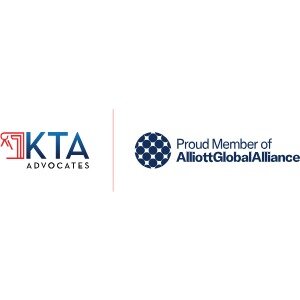Best Private Equity Lawyers in Uganda
Share your needs with us, get contacted by law firms.
Free. Takes 2 min.
Or refine your search by selecting a city:
List of the best lawyers in Uganda
About Private Equity Law in Uganda
Private equity refers to investments made in private companies or in public companies with the intention of delisting them from stock exchanges to restructure, grow, or improve their value. In Uganda, private equity is a growing sector that plays a crucial role in fostering entrepreneurship, supporting new business ventures, and stimulating economic development. The legal framework governing private equity in Uganda involves a range of regulations focused on investment, business formation, acquisition, company law, and the protection of investor rights. As the market matures, private equity transactions are becoming more sophisticated, making legal expertise increasingly important for successful and compliant operations.
Why You May Need a Lawyer
Engaging in private equity transactions can be complex. Here are some common situations where professional legal help becomes essential:
- Structuring deals: Legal professionals help structure investment arrangements, draft term sheets, and negotiate fair terms for all parties involved.
- Due diligence: Lawyers perform legal due diligence to identify possible risks associated with target companies.
- Drafting documents: Investment agreements, shareholder agreements, and exit strategies must be legally sound and tailored to Ugandan law.
- Regulatory compliance: Ensuring compliance with the Capital Markets Authority, the Companies Act, and other relevant laws is crucial to avoid legal penalties.
- Dispute resolution: Should conflicts arise between stakeholders, legal advice is vital to resolve disputes efficiently and protect interests.
- Cross-border transactions: Investments involving foreign entities require careful navigation of both domestic laws and international treaties.
Without expert legal guidance, investors and entrepreneurs may miss critical legal requirements, potentially jeopardizing their investments and business interests.
Local Laws Overview
Key legislation and regulations guide private equity transactions in Uganda. Understanding some of the principal legal frameworks can help you navigate this field more effectively:
- Companies Act, 2012: This act outlines the processes for company incorporation, management, and dissolution. It handles matters related to merger, acquisition, and directors' duties.
- Capital Markets Authority Act (Cap 84): This law regulates the raising of capital from the public, including private placements, and governs the activities of venture capital and private equity firms.
- Investment Code Act, 2019: Overseen by the Uganda Investment Authority, this legislation sets the regulatory environment for both local and foreign investment, including incentives and protections.
- Competition and Consumer Protection Act: Ensures fair competition and addresses anti-competitive practices in private equity transactions.
- Tax Laws: Key tax statutes, such as the Income Tax Act and Value Added Tax Act, influence deal structuring, capital gains, and dividend payments.
Depending on the nature and size of the transaction, private equity investments must comply with anti-money laundering regulations and sometimes sector-specific laws, particularly in industries like banking, energy, and telecommunications.
Frequently Asked Questions
What is private equity?
Private equity involves investment in non-publicly traded companies, typically to finance growth, buyouts, or restructuring efforts. These investments can take various forms, including direct equity infusion, management buyouts, or venture capital.
How is private equity regulated in Uganda?
Private equity transactions are mainly governed by the Companies Act, the Capital Markets Authority Act, and the Investment Code Act. These laws establish requirements for company formation, investment approval, disclosure, and investor rights protection.
Do foreign investors need special approval to invest in Ugandan companies?
Yes, foreign investors must register with the Uganda Investment Authority and obtain the necessary investment license. Certain sectors may have additional restrictions or require sector-specific approvals.
What legal documents are required for a private equity transaction?
Common documents include term sheets, investment agreements, shareholder agreements, disclosure statements, and exit agreements. Each transaction may require tailored documentation based on its structure and objectives.
What is legal due diligence in a private equity deal?
Legal due diligence is the process of investigating the target company’s legal standing, compliance, contracts, liabilities, and intellectual property. It helps investors identify potential risks before finalizing a deal.
Are there tax implications for private equity investments?
Yes, private equity transactions are subject to Uganda’s tax laws, including capital gains, withholding tax, and corporate tax. Deal structuring should consider these implications to optimize returns and maintain compliance.
Can private equity investors have control over the companies they invest in?
Control varies depending on the deal structure. Some investors acquire majority stakes and gain operational control, while others may opt for minority positions with specific governance rights outlined in shareholder agreements.
What happens if there is a dispute between investors and company management?
Shareholder agreements typically contain dispute resolution mechanisms, such as mediation, arbitration, or recourse to Ugandan courts. Legal assistance is essential to navigate these disputes effectively.
Is it possible for private equity investors to exit their investments in Uganda?
Yes, exit options include selling shares back to founders, to other investors, through a public offering, or by arranging mergers and acquisitions. The preferred exit strategy should be agreed upon and documented during the investment process.
What risks should investors consider before entering the Ugandan market?
Key risks include regulatory changes, political stability, currency fluctuation, company performance, and local market dynamics. Engaging competent legal counsel helps mitigate these risks through effective structuring and compliance.
Additional Resources
For more information and support regarding private equity in Uganda, the following organizations and resources are recommended:
- Uganda Investment Authority (UIA) - Oversees investment regulation, licensing, and advisory services for both foreign and local investors.
- Capital Markets Authority (CMA) - Regulates securities, including private placements and investment schemes.
- Uganda Law Society (ULS) - Provides directories of accredited legal practitioners experienced in corporate and investment law.
- Uganda Registration Services Bureau (URSB) - Responsible for company registration, records management, and intellectual property protection.
- Private Equity and Venture Capital Association Uganda (PEVCAU) - Supports networking, professional development, and industry advocacy for private equity professionals.
Next Steps
If you are considering private equity investment or involvement in Uganda, follow these steps to ensure a smooth and legally compliant process:
- Identify your investment goals and potential target companies.
- Engage a qualified lawyer with experience in private equity and corporate law to help structure your deal and draft contractual documentation.
- Conduct thorough legal and financial due diligence to assess risks.
- Ensure compliance with all regulatory requirements, including licensing and approvals from the relevant authorities.
- Establish clear governance, exit strategies, and dispute resolution mechanisms in your agreements.
- Stay updated with local law amendments and best practices relevant to private equity.
Taking early and proactive legal steps is essential for a successful private equity transaction in Uganda. Professional legal guidance will safeguard your interests and maximize your investment outcomes.
Lawzana helps you find the best lawyers and law firms in Uganda through a curated and pre-screened list of qualified legal professionals. Our platform offers rankings and detailed profiles of attorneys and law firms, allowing you to compare based on practice areas, including Private Equity, experience, and client feedback.
Each profile includes a description of the firm's areas of practice, client reviews, team members and partners, year of establishment, spoken languages, office locations, contact information, social media presence, and any published articles or resources. Most firms on our platform speak English and are experienced in both local and international legal matters.
Get a quote from top-rated law firms in Uganda — quickly, securely, and without unnecessary hassle.
Disclaimer:
The information provided on this page is for general informational purposes only and does not constitute legal advice. While we strive to ensure the accuracy and relevance of the content, legal information may change over time, and interpretations of the law can vary. You should always consult with a qualified legal professional for advice specific to your situation.
We disclaim all liability for actions taken or not taken based on the content of this page. If you believe any information is incorrect or outdated, please contact us, and we will review and update it where appropriate.
Browse private equity law firms by city in Uganda
Refine your search by selecting a city.
















